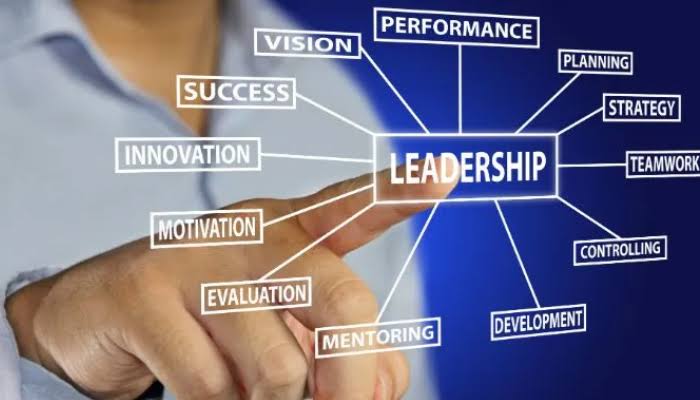In the fast-evolving world of the 21st century, leadership is no longer confined to authority or titles. As of 2025, effective leadership has become a dynamic and adaptive skill set that blends emotional intelligence, communication, inclusivity, and strategic thinking. Whether in business, education, government, or community development, today’s leaders must navigate complexity, empower diverse teams, and inspire innovation while maintaining trust and ethical integrity. The modern era demands leaders who can lead with vision and empathy while adapting to constant change.
The Changing Landscape of Leadership
Traditional leadership styles focused on control, hierarchy, and directive management. However, with globalization, digital transformation, and increasing demand for transparency, the expectations of leadership have shifted. Today’s successful leaders:
- Value collaboration over command
- Embrace diversity and inclusivity
- Adapt to remote and hybrid work environments
- Lead with empathy and emotional intelligence
- Foster innovation through trust and autonomy
As a result, effective leadership today is more about influence than authority, more about guidance than control.
Core Leadership Skills for the Modern Era
1. Emotional Intelligence (EQ)
Emotional intelligence is the ability to recognize, understand, and manage your emotions and those of others. Leaders with high EQ build trust, resolve conflicts more effectively, and cultivate stronger team relationships.
Key components include:
- Self-awareness
- Self-regulation
- Empathy
- Motivation
- Social skills
In an age where mental health and workplace culture are priorities, emotionally intelligent leadership is essential.
2. Communication and Active Listening
Modern leaders must communicate clearly, authentically, and frequently. They also need to be excellent listeners. This includes:
- Tailoring messages for different audiences
- Encouraging open dialogue
- Using digital tools effectively to stay connected
- Practicing active listening to understand concerns and feedback
Clear communication fosters engagement, minimizes misunderstandings, and builds team confidence.
3. Adaptability and Agility
With the rapid pace of technological advancement and market changes, rigid leadership models no longer work. Effective leaders in 2025 must embrace change and pivot quickly when needed.
This means:
- Staying open to new ideas and innovations
- Leading during uncertainty with calm and confidence
- Encouraging experimentation and learning from failure
Agility in leadership promotes resilience and prepares teams for the unexpected.
4. Visionary Thinking
Leaders must be forward-thinking, setting clear goals while aligning team efforts with long-term strategy. Visionary leaders:
- Inspire others with a compelling purpose
- Anticipate future challenges and opportunities
- Align decisions with core values and mission
A well-communicated vision helps people stay motivated and understand how their contributions fit into the bigger picture.
5. Inclusive and Ethical Leadership
Diversity, equity, and inclusion (DEI) are not just ideals—they are leadership imperatives. Modern leaders must foster environments where all voices are heard and respected.
Practices include:
- Encouraging diverse perspectives in decision-making
- Promoting fairness and equity in opportunities
- Leading with integrity and ethical accountability
This not only strengthens team performance but also enhances the organization’s reputation and social impact.
6. Decision-Making and Problem Solving
Effective leadership involves making informed, timely decisions—especially under pressure. Successful leaders today:
- Use data and insights to guide decisions
- Consult with experts and team members
- Weigh risks against potential benefits
- Accept responsibility for outcomes
Strong decision-making skills lead to better results and build confidence in leadership.
7. Empowering Others
Rather than micromanaging, modern leaders delegate responsibility and empower team members to take ownership of their work. This involves:
- Providing clear expectations and resources
- Encouraging creativity and initiative
- Recognizing and rewarding contributions
- Offering mentorship and opportunities for growth
Empowerment builds trust, loyalty, and a more engaged workforce.
Leadership in a Digital and Remote World
With hybrid and remote work now commonplace, leaders must also adapt to leading across time zones, platforms, and cultures. Effective digital leadership includes:
- Using tools like Slack, Zoom, or Microsoft Teams to communicate
- Setting clear goals and expectations remotely
- Keeping remote workers connected and motivated
- Being flexible with work styles and time zones
Digital fluency is now a critical component of leadership success.
Developing Leadership Skills
Great leaders are not born—they are built through continuous learning and self-reflection. Ways to grow leadership skills include:
- Participating in leadership training programs
- Seeking mentorship and coaching
- Soliciting regular feedback from peers and teams
- Reading widely and staying informed on leadership trends
- Practicing mindfulness and stress management
The journey of leadership is ongoing, and those who embrace growth will remain effective and impactful.
Conclusion
Effective leadership in the modern era is multidimensional, rooted in empathy, adaptability, and vision. As the demands on leaders continue to evolve, those who commit to clear communication, emotional intelligence, ethical responsibility, and inclusive practices will be best positioned to guide their teams through change and success. The future belongs to leaders who listen, empower, and innovate—those who understand that leadership today is less about being in charge and more about taking care of those in your charge.



